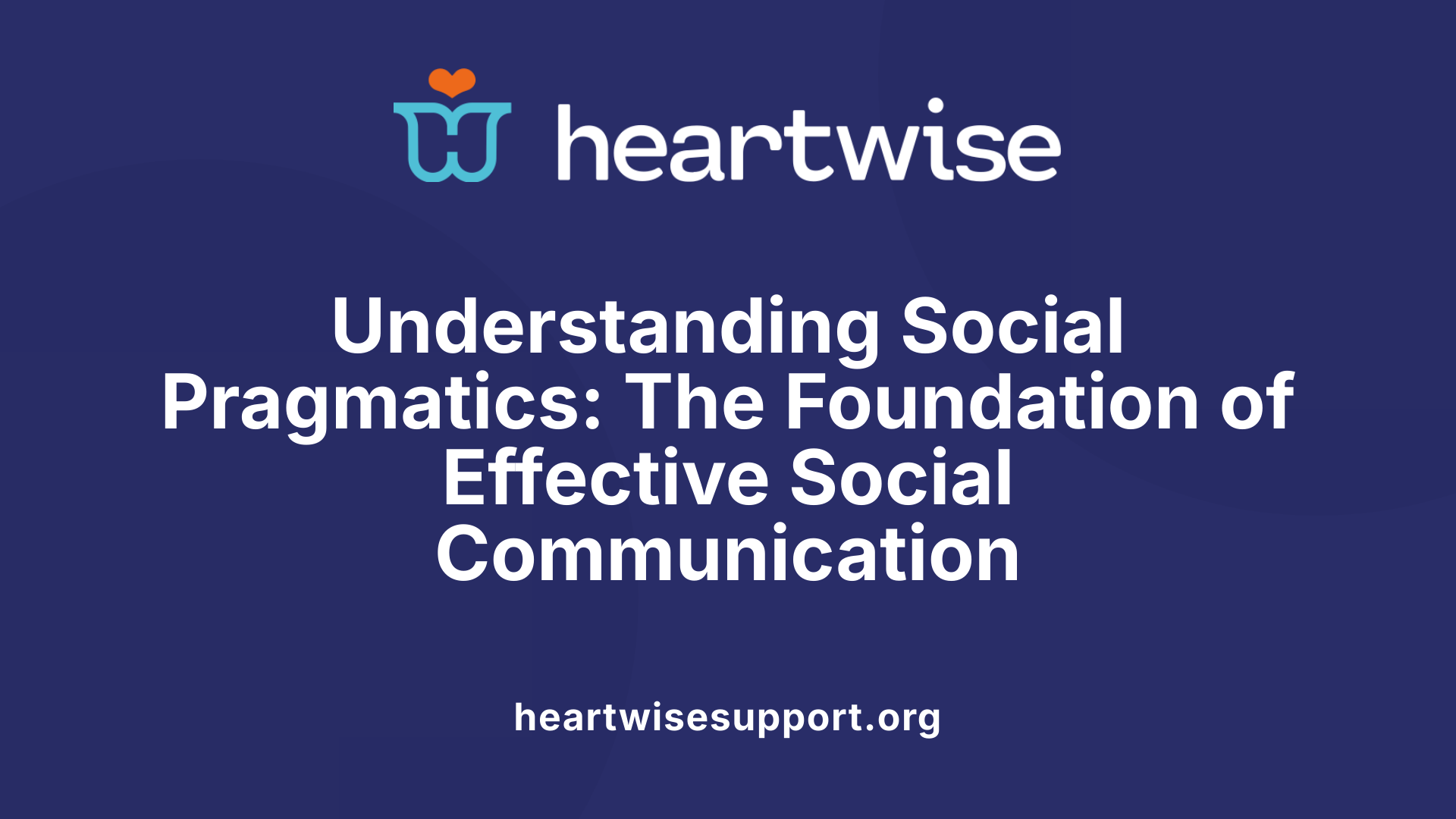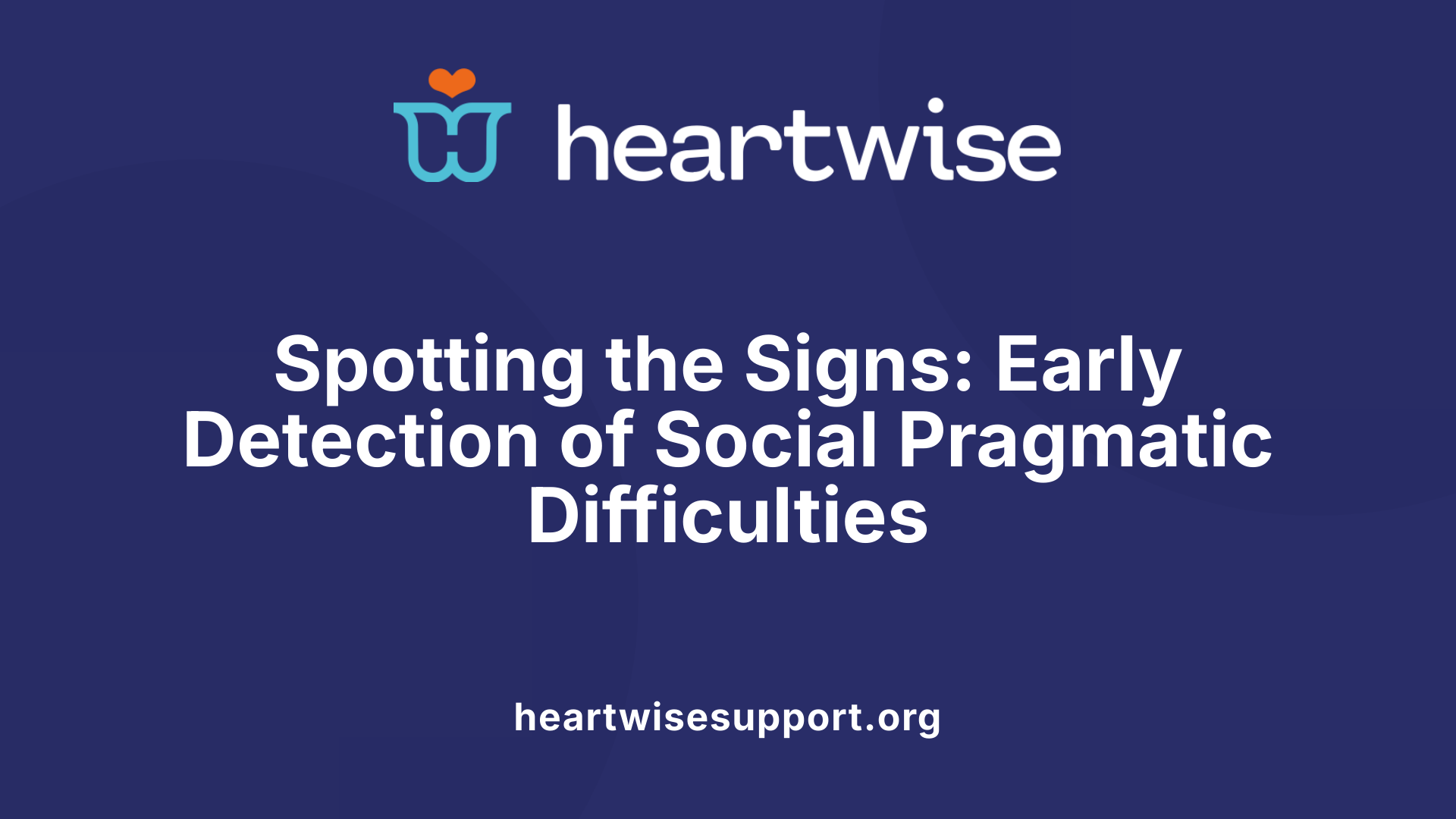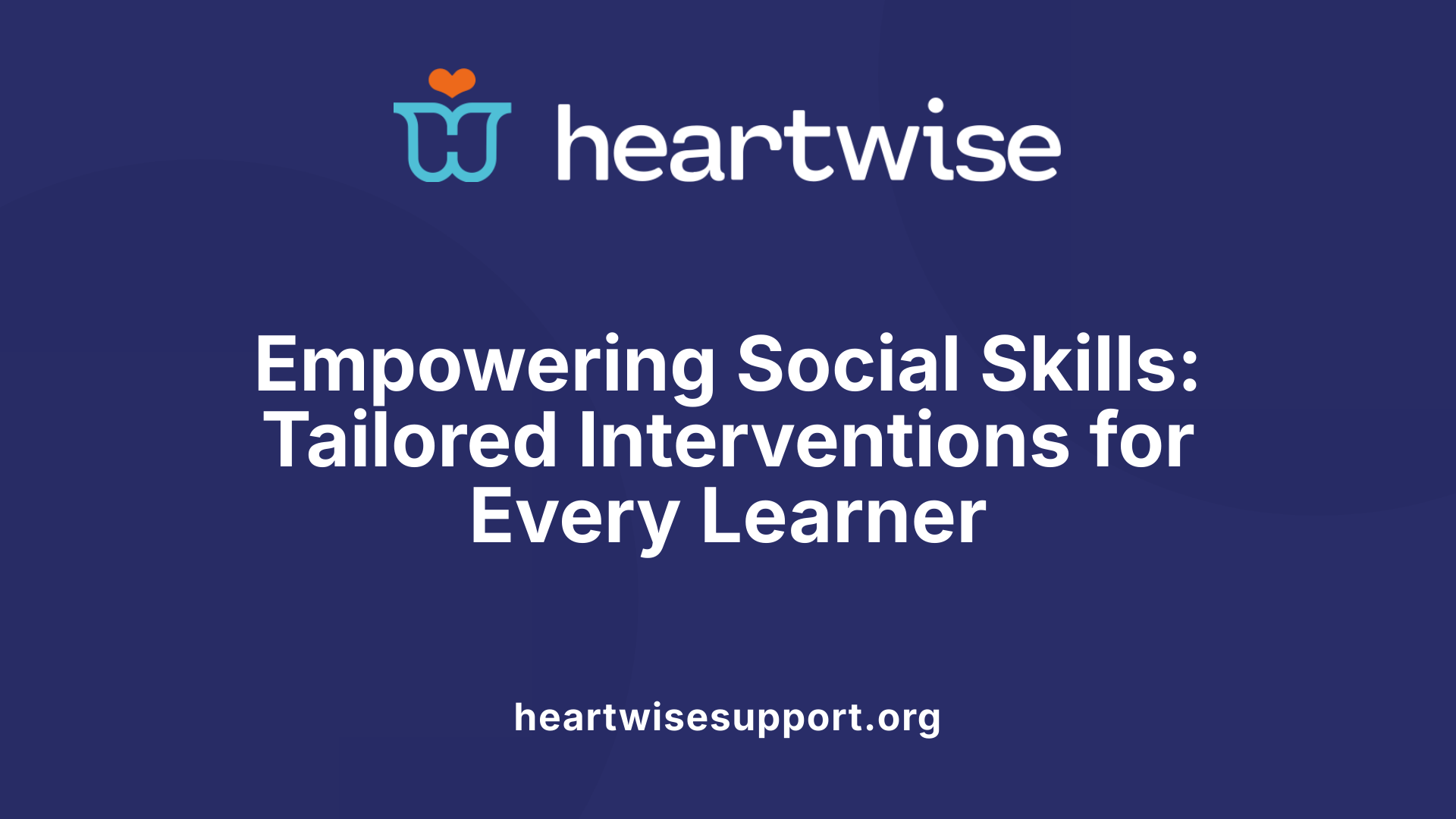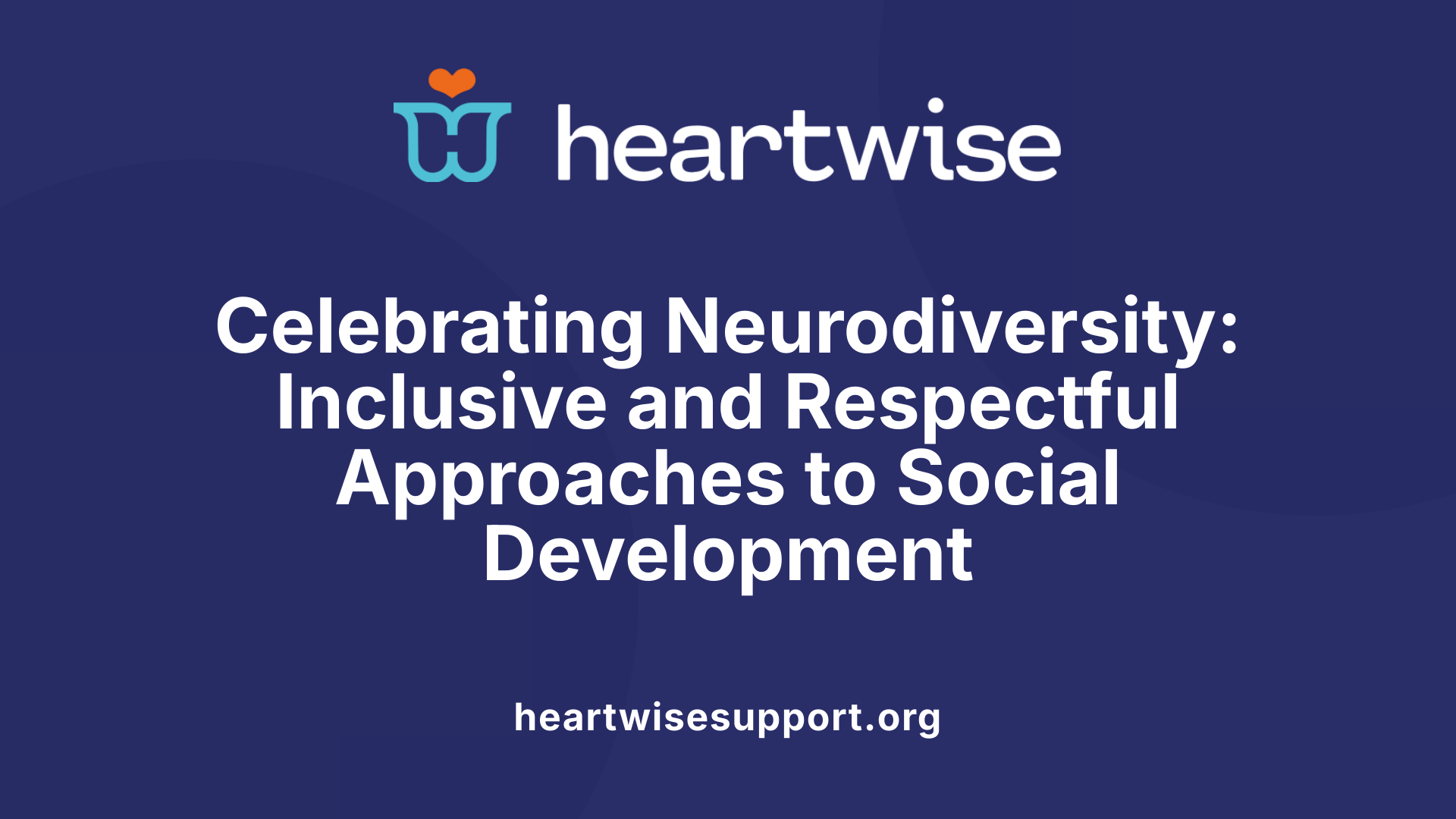Understanding the Importance of Social Pragmatics in Communication
Social pragmatics, often known as pragmatic language skills, refer to the social use of language in varying contexts. These skills govern how individuals communicate effectively, interpret social cues, and navigate relationships in everyday life. Challenges in social pragmatics can significantly impact personal, academic, and professional interactions, making targeted speech therapy crucial for those experiencing difficulties.
Defining Social Pragmatics and Its Role in Communication

What is social pragmatics?
Social pragmatics refers to how people use language in social settings. It involves understanding and using social cues, such as body language and facial expressions, and knowing how to take turns during conversations. Adjusting communication based on who you are talking to and the context is also a vital part of social pragmatics. These skills help individuals connect with others, share ideas, and navigate social interactions effectively.
What are pragmatic language skills?
Pragmatic language skills encompass a range of abilities related to the functional use of language. This includes greeting others, making requests, sharing information, and maintaining conversations. Non-verbal cues like facial expressions, gestures, eye contact, and body language play a significant role. Being able to interpret these cues helps in understanding social situations better and responding appropriately.
How do social language skills develop over time?
Development of social language skills follows a progressive pattern.
| Age Range | Key Milestones | Description |
|---|---|---|
| 0-12 months | Gestures and simple sharing | Infants start using gestures and showing interest in social exchanges. |
| 12-24 months | Words and joint attention | Toddlers begin speaking in words, pointing, and engaging in shared focus. |
| 24-36 months | Conversation purposes and simple stories | Children use language for different reasons, tell simple stories, and show understanding of others’ emotions. |
| 36-48 months | Complex pretend play and conversation | Preschoolers participate in pretend play, ask questions, and develop more sophisticated conversational skills. |
By the age of three to four, children typically understand basic social cues, stay on topic more consistently, and manage reciprocal conversations. Continued practice and support help refine these skills, enabling better social interactions throughout childhood and beyond.
Understanding these milestones helps caregivers and educators identify typical versus delayed development in social communication, guiding timely interventions if needed.
Identifying and Diagnosing Social Communication Challenges

Signs of social pragmatic difficulties
Children and adults with social communication challenges often exhibit specific signs. These include trouble making eye contact, understanding and interpreting body language, facial expressions, and other non-verbal cues. They may struggle to initiate or sustain conversations, take turns appropriately, and follow social norms in interactions. Difficulties in understanding jokes, sarcasm, or abstract language are also common. Moreover, forming and maintaining friendships can be challenging due to limited awareness of social expectations.
Disorders involving social pragmatics, e.g., SCD and ASD
Social pragmatic issues are characteristic of various developmental and communication disorders. Social Communication Disorder (SCD) specifically involves persistent difficulties in using verbal and non-verbal language for social purposes, affecting social interactions and understanding. Autism Spectrum Disorder (ASD), while sharing some social communication difficulties with SCD, additionally includes restricted and repetitive behaviors and interests. Both conditions can significantly impact a person's ability to participate fully in social settings.
Assessment procedures by speech-language pathologists
Evaluating social communication challenges involves a comprehensive process led by speech-language pathologists (SLPs). Assessments typically include standardized tests to measure pragmatic language skills, direct clinical observations in multiple settings, and questionnaires filled out by caregivers or teachers. These tools help identify specific areas of difficulty and differentiate SCD from autism or other related conditions. Developmental history, social routines, and communication behaviors are also reviewed to inform diagnosis and tailor intervention strategies.
| Evaluation Component | Purpose | Additional Details |
|---|---|---|
| Standardized Tests | Measure pragmatic language and social communication skills | Use age-appropriate, validated assessments |
| Clinical Observation | Observe real-time social interactions | Conducted in naturalistic or structured environments |
| Caregiver/Teacher Questionnaires | Gather information on social behaviors in daily life | Provides context about social routines and challenges |
| Developmental and Medical History | Understand developmental milestones and health background | Essential for differential diagnosis and planning |
Understanding and accurately assessing social pragmatics is crucial for developing effective interventions that support individuals in improving their social skills and participating meaningfully in their communities.
Treatment Strategies and Intervention Approaches
 Effective treatment for pragmatic language difficulties involves a combination of strategies tailored to each individual's needs. Central to therapy are core components such as improving functional social communication skills, including turn-taking, using appropriate conversational topics, understanding nonverbal cues, and recognizing social norms.
Effective treatment for pragmatic language difficulties involves a combination of strategies tailored to each individual's needs. Central to therapy are core components such as improving functional social communication skills, including turn-taking, using appropriate conversational topics, understanding nonverbal cues, and recognizing social norms.
Speech-language pathologists (SLPs) play a crucial role in supporting social pragmatics. They develop personalized goals based on thorough assessments, often using standardized tests and caregiver input. These professionals model social behaviors, facilitate role-playing activities to mimic real-life interactions, and incorporate visual supports like social stories and cues.
Several evidence-based practices underpin effective intervention. Techniques such as Social Thinking®, Social Stories™, and video modeling are supported by research and are implemented to promote respectful, neurodiversity-affirming approaches. These methods emphasize understanding social perspectives, mutual respect, and reducing anxiety associated with social situations.
Role-playing, social stories, and video modeling allow children to observe, practice, and internalize social skills in a controlled environment. Group therapy sessions provide opportunities for peer interaction, fostering social motivation and generalization of skills.
Strategies are often culturally sensitive, recognizing that social norms and communication styles vary across different backgrounds. Therapists incorporate family members into sessions and at-home activities, such as practicing turn-taking, reading stories about social interactions, and using visual supports, to reinforce learning.
In sum, successful pragmatic speech therapy combines individualized goals, evidence-supported techniques, and family involvement to enhance a child's ability to communicate effectively in social contexts.
Benefits of Speech Therapy and Supporting Social Development
What are the benefits of speech therapy for social communication challenges?
Speech therapy plays a vital role in improving social skills for individuals with Social (Pragmatic) Communication Disorder (SCD). Through targeted interventions, individuals can enhance their ability to interpret social cues, engage in reciprocal conversations, and express themselves appropriately in social settings. This improvement fosters greater confidence, helps build stronger relationships, and supports better integration within community and school environments. Therapy techniques such as role-playing, social stories, video modeling, and peer-mediated strategies make these skills more accessible and applicable to real-life situations.
How can families support social pragmatic development?
Support from families is essential in reinforcing social communication skills learned during therapy. Practical methods include practicing social routines like turn-taking and greeting, encouraging the use of visual supports to understand nonverbal cues, and reading social stories that depict appropriate behavior in various situations. Role-playing different scenarios at home helps children understand and apply social rules, while organizing playdates allows them to practice their skills in a natural setting. Such involvement nurtures social understanding and fosters a positive attitude toward social interactions.
Why is early intervention important?
Detecting social communication difficulties early and initiating intervention can dramatically influence the child's social development trajectory. Early support helps children develop crucial social skills, promoting independence and reducing feelings of social isolation. When children receive timely therapy and family involvement, they are more likely to master pragmatic language skills, participate confidently in social activities, and build meaningful friendships. Early intervention sets a foundation for successful social functioning throughout life.
| Aspect | Benefits | Details |
|---|---|---|
| Improvement in social skills | Increased confidence, better relationships | Enhances abilities like turn-taking, understanding cues, empathy |
| Family involvement | Reinforces learned skills | Practice routines, role-play, social story discussions |
| Early diagnosis | Better developmental outcomes | Achieves lasting social independence and reduces isolation |
Supporting social communication development combines professional therapy with active family participation. Such a comprehensive approach helps individuals with SCD thrive socially and emotionally, leading to more fulfilling personal and academic lives.
Embracing Neurodiversity and Respectful Therapy Practices
 The neurodiversity perspective has gained prominence in social pragmatics intervention, emphasizing respect for individual differences and fostering authentic communication. This approach recognizes that neurodivergent individuals, including those with social communication challenges, possess unique strengths and ways of engaging with the world.
The neurodiversity perspective has gained prominence in social pragmatics intervention, emphasizing respect for individual differences and fostering authentic communication. This approach recognizes that neurodivergent individuals, including those with social communication challenges, possess unique strengths and ways of engaging with the world.
Traditional models often focus on eliminating differences by teaching neurodivergent individuals to conform to neurotypical social norms. In contrast, neurodiversity-affirming practices move away from deficit-based models, instead promoting strategies that support genuine self-expression and mutual understanding.
Practitioners adopting this approach aim to create an inclusive environment where individuals feel valued and accepted. They tailor interventions to each person's strengths, preferences, and cultural background, emphasizing self-advocacy and social acceptance.
Benefits of this inclusive stance are numerous. It helps reduce stigma and boosts self-esteem, encouraging individuals to embrace their identities. Children and adults are supported in developing social skills that are meaningful and sustainable for their lives, leading to more genuine social interactions.
By fostering mutual respect, these practices lay the groundwork for stronger, more authentic relationships based on understanding rather than conformity. This not only enhances social participation but also promotes mental well-being and independence.
For further insight, search with the phrase: "neurodiversity in social pragmatics therapy" to explore the latest research and resources on implementing these respectful, personalized strategies.
Harnessing the Power of Targeted Speech Therapy
Effective speech therapy focusing on social pragmatics can transform individuals' social interactions, enhance their confidence, and promote meaningful connections. By adopting evidence-based, culturally sensitive, and neurodiversity-affirming approaches, clinicians and families can support diverse communication styles and help individuals reach their full potential in social worlds.
References
- Social (Pragmatic) Communication Disorder | Autism Speaks
- Components of Social Communication - ASHA
- Understanding Pragmatic Skills Therapy: A Comprehensive Guide
- [PDF] Pragmatic Language - Speech - Cincinnati Children's Hospital
- Pragmatic / Social Language | Northern Virginia Speech Therapy
- Building Strong Pragmatic Language Skills - Speech Therapy Talk
- How Speech Therapy Can Improve Social Communication Disorders
- Social Communication (Pragmatics) - Kid Sense Child Development











